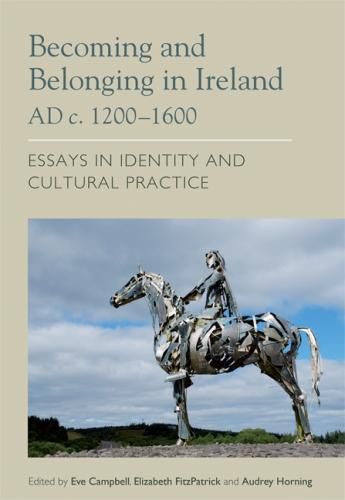Readings Newsletter
Become a Readings Member to make your shopping experience even easier.
Sign in or sign up for free!
You’re not far away from qualifying for FREE standard shipping within Australia
You’ve qualified for FREE standard shipping within Australia
The cart is loading…






The period c. 1200-1600 was marked by the achievements and decline of the Anglo-Norman colony in Ireland, refashioning of Gaelic elite identity, Reformation, and reassertion of English control that led to Plantation projects, bringing new people and ideas to the island. This collection explores the complexities and predicaments of identity, and the cultural practices used to express and underpin them in this key period, ranging from the micro-scale and personal to the macro-scale emergence of ideas of national identity. The authors consider the extent to which there was a relational character to identities in Ireland, whereby senses of being were constructed through engagements with others, and how the power of the past, in both framing and providing stability for identity formulations, is explicit in the ways in which groups intentionally evoked their own histories and connections to place, to reaffirm and bolster identity and solidarity. Cultural practices could become naturalised through repetition and, as reflections of identity, they were formed, transformed or abandoned when necessary or expedient.
$9.00 standard shipping within Australia
FREE standard shipping within Australia for orders over $100.00
Express & International shipping calculated at checkout
The period c. 1200-1600 was marked by the achievements and decline of the Anglo-Norman colony in Ireland, refashioning of Gaelic elite identity, Reformation, and reassertion of English control that led to Plantation projects, bringing new people and ideas to the island. This collection explores the complexities and predicaments of identity, and the cultural practices used to express and underpin them in this key period, ranging from the micro-scale and personal to the macro-scale emergence of ideas of national identity. The authors consider the extent to which there was a relational character to identities in Ireland, whereby senses of being were constructed through engagements with others, and how the power of the past, in both framing and providing stability for identity formulations, is explicit in the ways in which groups intentionally evoked their own histories and connections to place, to reaffirm and bolster identity and solidarity. Cultural practices could become naturalised through repetition and, as reflections of identity, they were formed, transformed or abandoned when necessary or expedient.